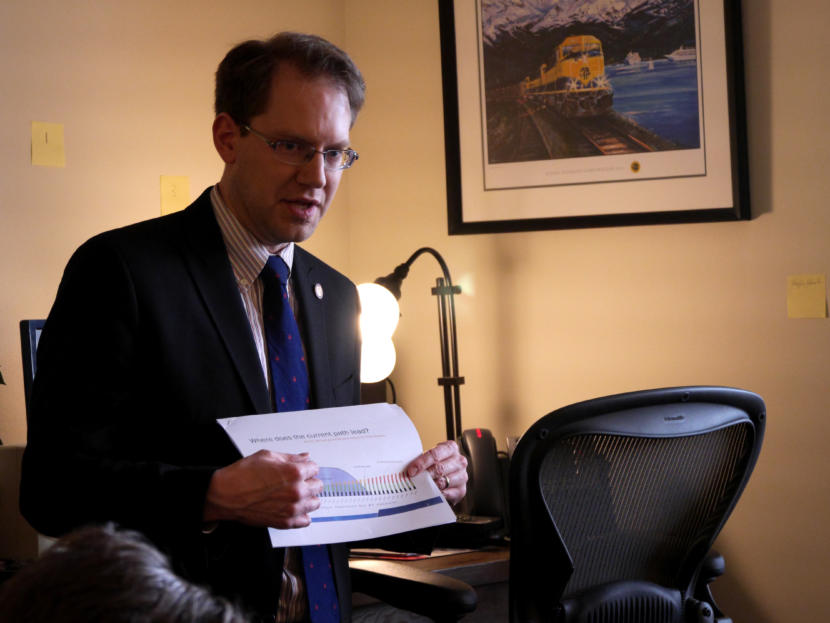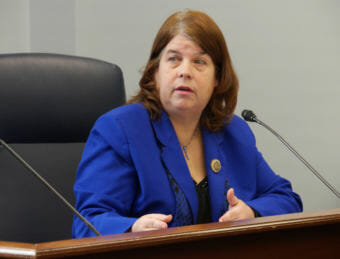
The state capital budget for the next year is caught in a dispute over the size of permanent fund dividends.
It also affects programs to pay for college grants and scholarships and to equalize power costs across the state.
The capital budget, Senate Bill 19, depends on at least six Republicans who aren’t in the House majority supporting the budget. That’s because it would draw $162.5 million from the Constitutional Budget Reserve, and drawing from that piggy bank requires support from three-quarters of the members of both chambers.
It doesn’t look like those votes will be there without dividends of roughly $3,000.
House Minority Leader Lance Pruitt, an Anchorage Republican, said his caucus supports amending the capital budget to pay full dividends under a 1982 state law. If that amendment isn’t successful, Pruitt anticipates there won’t be enough votes to draw from the Constitutional Budget Reserve.
“If the amendment for the dividend did not pass, then there would not be enough votes to have … the CBR language pass,” Pruitt said.
The capital budget debate could begin as soon as Wednesday. The budget would fund the reopening of Palmer Correctional Center and provide funding for new drug treatment facilities.

North Pole Rep. Tammie Wilson said $10 million would go to grants to expand drug treatment throughout the state.
“We know that there’s pretty much not a part of the state that’s not affected by not having enough treatment beds,” said Wilson, a Republican in the House majority caucus.
The House Finance Committee advanced the budget Tuesday on an 8-3 vote.
If the entire House falls short of the 30 votes needed to draw from the Constitutional Budget Reserve, there would be no money in the budget for the Power Cost Equalization program for residents with high energy bills. And there would be no money for both Alaska Performance Scholarships and needs-based Alaska Education Grants. Both programs pay for Alaska students to attend postsecondary education.
The capital budget also would include more than $1 billion in federal funding. But the state must spend some of its own money to receive the federal dollars.
Watch the latest legislative coverage from Gavel Alaska.
